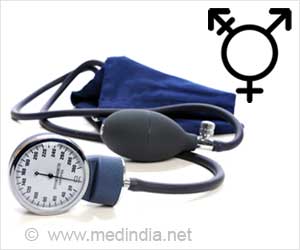Study finds that transgender women on hormone therapy may have early-stage prostate cancer missed by current PSA screening guidelines.

Improving Prostate Cancer Screening for Transgender Women
Go to source).
Hormone Therapy Lowers PSA Levels
The prostate gland, which contributes to semen production, also generates a protein known as prostate-specific antigen (PSA). Elevated PSA levels in the blood are often associated with prostate cancer, making the PSA test a standard screening method for the disease.‘"Estrogen therapy in transgender women lowers PSA (Prostate-Specific Antigen) levels, possibly delaying prostate cancer diagnosis." #prostatehealth #medindia’





"Many transgender women take estrogen as part of their gender-affirming treatment," explained Stephen Freedland, MD, the Warschaw, Robertson, Law Families Chair in Prostate Cancer at Cedars-Sinai and the senior author of the study. "Estrogen significantly reduces PSA levels, potentially rendering our current 'normal' thresholds too high to detect early-stage cancer in this group. Our study aimed to establish typical PSA levels for transgender women to improve the accuracy of prostate cancer screening for them."
According to current guidelines, PSA levels above 4.0 nanograms per milliliter of blood (ng/mL) suggest cancer could be present, and that additional investigation, such as a prostate biopsy, is needed."In the study, we used Veterans Health Administration records to identify 210 transgender women without known prostate cancer who were taking estrogen,” said Farnoosh Nik-Ahd, MD, a urology resident at the University of California, San Francisco, and first author of the study. “We found that the median PSA value, the midpoint in the range of participants, was 0.02 ng/mL, which is fiftyfold lower than PSA values reported in similar-aged cisgender men.”
This suggests that if they are taking estrogen, transgender women who develop prostate cancer wouldn’t see their PSA rise to levels that trigger additional screening until their cancer was at a later stage, making it more difficult to treat. Nik-Ahd said that patients and clinicians should be aware of this and interpret results with caution.
“Cedars-Sinai Cancer serves one of the most diverse patient populations in the country,” said Dan Theodorescu, MD, PhD, director of Cedars-Sinai Cancer and the PHASE ONE Foundation Distinguished Chair. “This work is part of our mission to conduct research that helps us understand the unique needs of our patients, then translate our findings into practices that improve patient outcomes.”
Additional research is needed to pinpoint a specific PSA level that indicates a transgender woman taking estrogen is at high risk for developing prostate cancer. And Freedland, who is also a professor of Urology at Cedars-Sinai and staff physician at the Durham VA Medical Center in North Carolina, said this study is not a call for transgender women to be screened.
Advertisement
Along with increased awareness, Freedland hopes to eventually see updated PSA screening guidelines. In the meantime, he advises transgender women who are taking estrogen to consult with their healthcare providers.
Advertisement
Reference:
- Improving Prostate Cancer Screening for Transgender Women - (https://www.cedars-sinai.org/newsroom/improving-prostate-cancer-screening-for-transgender-women/)
Source-IANS















